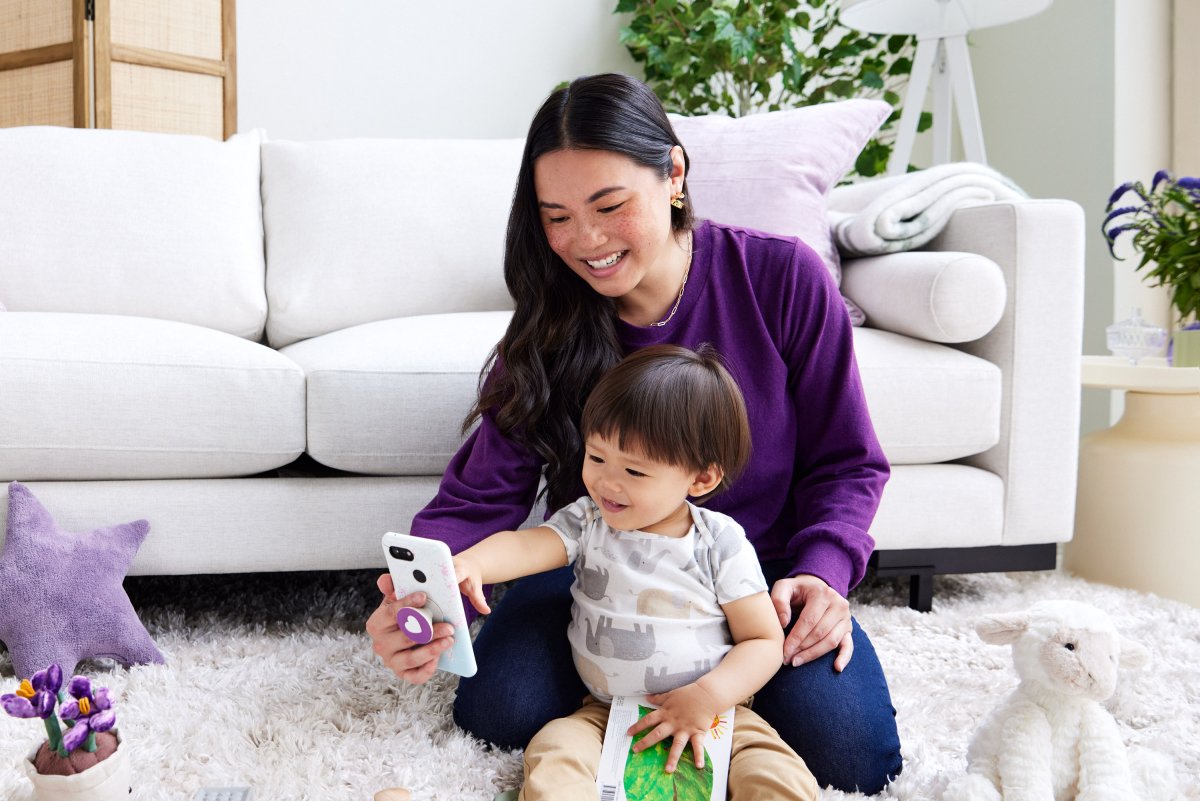As Canadians head into the third year of the COVID-19 pandemic, they are dealing with the anxiety of keeping healthy but also inflation, civil unrest around the world and climate change.

In a recent poll, more than half of Canadians reported that their mental health has worsened over the past two years. Making this even more challenging is the fact that accessing a mental health professional can be daunting due to long waitlists and confusion over finding the right professional.
“What I’ve seen is…it’s really hard for Canadians to access support and help for mental health,” says Dr. Matthew Chow, Medical Director for TELUS Health and former president of Doctors of British Columbia. “People are having difficulty finding appropriate therapists, psychologists and doctors that can treat mental health issues.”
Coincidentally, just before the pandemic, TELUS Health was seeking ways to help Canadians get better access to healthcare services, says Chris Engst, managing director. The issue of “access” kept coming up, so the company developed an app that would connect people with locally licensed health professionals to give patients more options. “What we are trying to do is use technology to help with healthcare service delivery,” says Engst.
The app, called TELUS Health MyCare, provides people with access to a wide range of local health professionals, from counsellors and psychologists to family doctors and dieticians, via their smartphones. TELUS Health MyCare launched in 2019, when many people were still unfamiliar with virtual physician visits.
That all changed in March 2020.
“When the pandemic hit, we went from 10 per cent of visits being virtual care to 90 per cent overnight,” says Dr. Chow.
Demand for the app “skyrocketed,” adds Engst.
READ MORE: Why mental health worsened during the pandemic

Get daily National news
Dr. Chow considers himself a “maverick,” as he was one of the first physicians in B.C. to offer virtual mental healthcare to people in their homes, seeing it as a convenient way to offer treatment.
And, he says, even in 2022 a stigma around mental health issues remains, which is why having a digital tool that is accessible from anywhere has become so popular (every 30 seconds in Canada, someone downloads the TELUS Health MyCare app, and every 90 seconds, a Canadian is accessing the service, says Engst).
“People would rather talk about a broken ankle… than mental health and mental health issues,” says Dr. Chow.
Engst adds that TELUS Health MyCare virtual care services are intended to complement Canada’s publicly-funded healthcare system, as family doctor appointments are covered under provincial health plans, providing a relief valve for long wait times and visits to emergency rooms.
READ MORE: Advocates in Quebec call for more mental health resources
How does it work? Users download the app, and after filling out a quick registration form, can begin scrolling through bios of the provincially-licensed and certified mental health counsellors. Many appointments can be booked the same day.
While access to medical doctors is covered under provincial health insurance, appointments for virtual counselling sessions are $120 per session, though approximately half of users have some coverage from their extended health benefits plans, says Engst.
As Canadians feel more financial pressures due to the economic downturn, the app provides an affordable way to treat their mental health and schedule virtual visits at times that are convenient. Engst says local professionals are available for extended hours and on statutory holidays. Also, the app is useful for people in rural and remote communities who may not have many available mental health services in their area, and for those with busy schedules or who have mobility issues who find it easier to speak with a counsellor in their own homes, says Dr. Chow.
Engst says TELUS Health MyCare has received many positive testimonials. One of his favourites was from a woman in her 90s.
“She said, ‘It’s just like I’m FaceTiming my grandchildren.’” Engst notes that ease of use was one of the goals in creating the app.
The TELUS Health MyCare app has seen a continual increase in demand since the start of the pandemic, likely because “the pandemic has had a negative impact on our collective mental health as Canadians,” says Dr. Chow.
People are seeking help for things like stress, depression, anxiety, substance abuse. And a growing number of children and youth are being diagnosed with eating disorders, says Dr. Chow.
He emphasizes that although these are difficult challenges to face, once people reach out for help, there is effective treatment available.
Patients who access the app can expect to speak to experienced therapists and psychologists from across Canada. These mental health experts deliver highly effective, evidence-based therapy, says Dr. Chow.
Also important, says Dr. Chow, is that patients can access experts who reside in their own communities. “It’s really important for people to have a choice in making decisions for themselves about who they see.”
“Most importantly, they can expect to be listened to.”
Engst says over the next year, TELUS Health aims to recruit more counsellors, psychologists and psychiatrists to bolster its clinical team and to continue to talk about wellness via TELUS Health MyCare Wellness, which just launched. Users get access to live wellness workshops focused on the mind, body, nutrition and sleep.
All of these steps fit into another main objective of the program, which is prevention, says Dr. Chow.
“That is one of our goals. By making it easier for people to get help sooner, when a problem is still a small problem, so it doesn’t fester and become a much bigger problem.”


